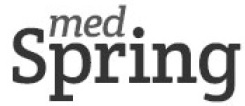MIGAL Research institute, Upper-Galilee Council and ATD fund are welcome you to the International Capitalization event of the SCOW project for Recycling and Reducing Waste at tourism and agricultural areas.
Main issues at the conference:
- Symposium of best practices and policy
- Learning from Europe
- New technologies for organic waste treatment
- Involvement of the community of organic waste separating at source
- Compost production and use
- Professional study-tours
- Innovative models in Israel and in the world
ABOUT SCOW Project
As the world population is projected to increase from the current number of 7 billion to 9 billion in the year 2050, the amount of organic wastes generated from human, animal and agriculture activities would also increase, causing more pollution problems to the environment. A significant challenge confronting engineers and scientists in developing countries is the search for appropriate solutions to the collection treatment and disposal or reuse of domestic waste.
The aim of SCOW, funded by the ENPI CBCMED Programme, is to develop low cost, technically simple and high quality biowaste collection and recycling models in territories with touristic areas and agricultural activity.
SCOW wants to build up a sustainable, innovative and local treatment of the biowaste in decentralized small-scale composting plants, developed essentially in agricultural holdings situated near the biowaste production areas in the partners’ territories.It will contribute to improve general waste management, closing the cycle of the organic matter in countries with an important lack of organic carbon at soil. It will also help to improve land structure and fertility, reducing desertification (applying compost to soils), global warming (avoiding the entrance of biodegradable materials to landfills and capturing carbon in soil) and landfilling capacity needs (reducing waste entrance). In addition, it will create new economic activity, even at waste collection and treatment sectors and compost selling. The experience would be able to be reproduced in other Mediterranean zones, reducing impacts at source, through a simple management of the biowaste collection and treatment with the idea of self-sufficiency.
More information about this event at http://www.biowaste-scow.eu/The-sixth-Conference-for-Recycling-And-Reducing-Waste.



